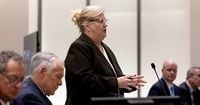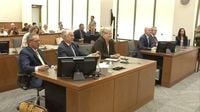PROVO, Utah — The courtroom in Provo was quiet but tense on September 29, 2025, as the legal battle over the killing of conservative activist Charlie Kirk took a measured step forward. At the heart of the proceedings: Tyler Robinson, a 22-year-old man charged with Kirk’s assassination, whose defense team requested more time to sift through what both sides described as a "voluminous" mountain of evidence. The case has already sent political and cultural shockwaves far beyond Utah’s borders, and the legal process is only just beginning.
Robinson, accused of shooting Kirk on September 10, 2025, at Utah Valley University in Orem, did not appear in person for Monday’s hearing. Instead, due to security concerns, he joined via audio link from Utah County Jail at the request of his defense attorneys. Kathryn Nester, his newly appointed lead counsel, stood before Fourth District Court Judge Tony Graf and made it clear that her team would not waive Robinson’s right to a preliminary hearing—a crucial stage where the court will decide if prosecutors have enough evidence to proceed to trial.
"Until we can kinda get our heads around exactly what we're dealing with and how much we need to process, it's going to be difficult for us to give you a reasonable expectation of when we will be ready to do the prelim," Nester told Judge Graf, according to reporting by KUTV. The hearing itself was brief—just over ten minutes—but its implications were weighty. Both defense and prosecution acknowledged the sheer scale of the evidence, including DNA samples, text messages, and other materials gathered during the high-profile investigation.
Judge Graf, presiding over the proceedings, was measured and emphatic in his remarks. “He sits before this court presumed innocent, and that presumption remains unless and until each element of every offense charged against him is proved beyond a reasonable doubt,” the judge declared, as reported by Nexstar Media. He added, “Let me be clear: I will not put my finger on the scale of justice.” Graf underscored that the process would be open, transparent, and fair, and reminded both sides of their duty to uphold integrity and civility in a case that has drawn national attention.
Robinson faces seven charges, including aggravated murder—a charge that carries the possibility of the death penalty under Utah law. Utah County Attorney General Jeff Gray confirmed the state’s intention to pursue capital punishment. Other counts include felony discharge of a firearm causing serious bodily injury, obstruction of justice, witness tampering, and commission of a violent offense in the presence of a child. The next hearing is scheduled for October 30, 2025, with Judge Graf ordering that Robinson be allowed to appear in person to fully participate in his defense.
The September 10 shooting, which resulted in Kirk’s death from a single bullet wound to the neck while he was speaking at Utah Valley University, launched a frantic, day-and-a-half search for the suspect. Robinson ultimately turned himself in at his hometown sheriff’s office in southwest Utah—more than a three-hour drive from the crime scene—accompanied by his parents. According to the Associated Press, prosecutors have since revealed that DNA evidence and incriminating text messages tie Robinson to the killing.
Some of the most damning evidence, according to Utah County Attorney Jeff Gray, comes from Robinson’s own words. Before the shooting, Robinson allegedly left a note for his romantic partner stating that he had the opportunity to kill “one of the nation’s leading conservative voices, and I’m going to take it.” In a separate text, he wrote about Kirk: “I had enough of his hatred.” Court documents further reveal that Robinson’s mother told investigators her son had recently begun dating his roommate, who was transitioning from male to female. When that roommate later asked Robinson directly if he was Kirk’s shooter, Robinson allegedly replied, “I am, I’m sorry.”
The high-profile nature of the case is magnified by Kirk’s own prominence in American politics. A close ally of former President Donald Trump, Kirk founded Turning Point USA, an Arizona-based organization that has mobilized young evangelical Christians through podcasts, social media, and campus events. Kirk’s assassination has galvanized many on the right, with Trump himself declaring Kirk a “martyr for freedom” and vowing to crack down on what he called the “radical left.” According to the Los Angeles Times, Republicans have pledged to continue Kirk’s mission of steering American politics further right, and prominent figures such as Utah Governor Spencer Cox and Senator Mike Lee are stepping in to fill Kirk’s role at upcoming campus events.
The political reverberations have not been confined to rallies or statements. Across the United States, employees—including teachers, public and private workers, and even high-profile media personalities like Jimmy Kimmel—have reportedly faced punishment or termination for speaking out about Kirk’s death. Kimmel’s late-night show was temporarily suspended by ABC in the aftermath, before being reinstated.
Meanwhile, the legal process is unfolding under intense scrutiny. Judge Graf has repeatedly emphasized the importance of fairness and adherence to constitutional principles. “As this case moves forward, Mr. Robinson's constitutional rights will be protected at every stage,” Graf said, according to KUTV. He also highlighted the rights of victims, stating, “Justice demands that both of these principles—the rights of the accused and the rights of victims—be honored without compromise.” Prosecutor Chad Grunander echoed the court’s commitment to professionalism, telling the court, “We are truth seekers. We will aggressively pursue the truth in this case.”
For many students at Utah Valley University, the trauma of the shooting still lingers. The campus, just a few miles from the Provo courthouse, has become a focal point for both grief and political activism. As prominent Republicans fill in at the events Kirk was meant to headline, the community continues to grapple with the aftermath of violence and the national attention it has brought to their doorstep.
As the October 30 hearing approaches, all eyes remain on Provo. The case against Tyler Robinson is poised to test not just the limits of the legal system, but the nation’s ability to balance justice, political passions, and the rights of all involved. In the words of Judge Graf: “Neither Mr. Robinson nor the people of Utah deserve anything less than the fair and impartial administration of justice.”





